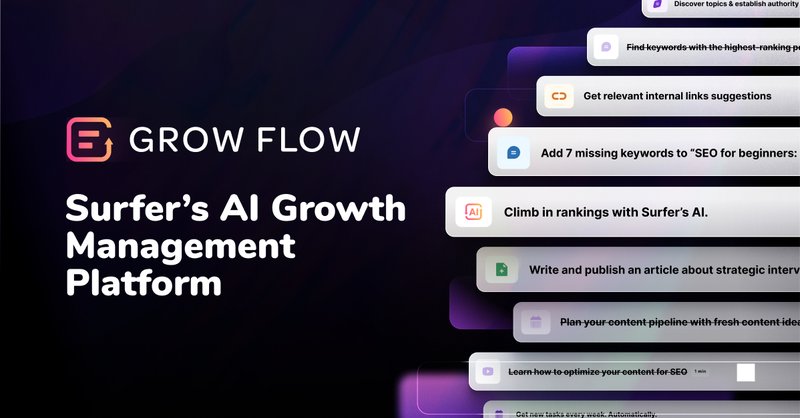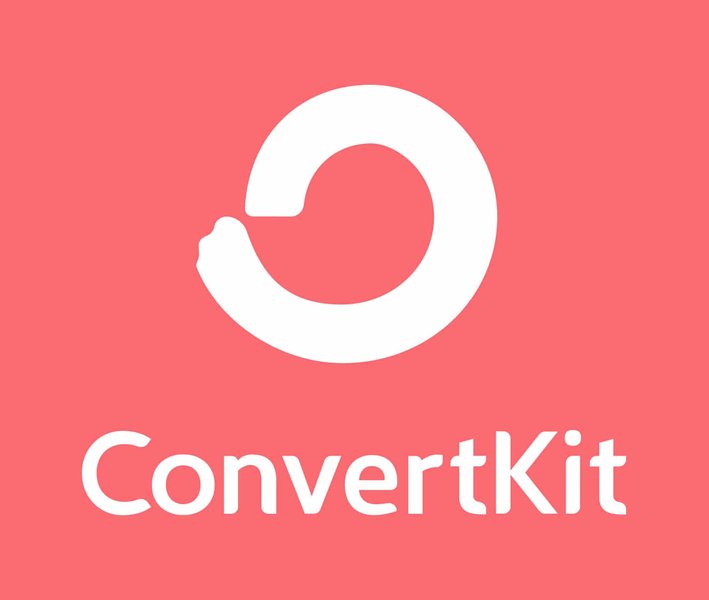7 Ways to Search Engine Optimize Content: SEO Blog Tips
SEO can help your blog posts rank higher in search engine results pages, which can lead to increased traffic and more visibility for your blog.


If you're a blogger, you're probably aware of the importance of search engine optimization (SEO) for your content. SEO can help your blog posts rank higher in search engine results pages, which can lead to increased traffic and more visibility for your blog.
SEO can be a complex and ever-changing field, and it can be difficult to know where to start when it comes to optimizing your blog posts. That's why we've put together this article to provide you with seven proven ways to optimize your content for search engines.
From using valuable keywords to optimizing images and securing your website, these tips can help you improve your blog's SEO and attract more readers to your content. Whether you're a seasoned blogger or just starting out, these tips can help you take your blog to the next level.
Understanding SEO for Bloggers
SEO or 'search engine optimization' is the process of optimizing your website or blog content to increase traffic from search engines.
It involves optimizing your website's structure and content to make it more search-engine friendly. SEO for bloggers is essential for increasing visibility and attracting more visitors to your blog.
SEO for bloggers involves various techniques, including:
- keyword research
- on-page optimization
- link building, and
- content promotion
Keyword research is the process of finding and analyzing the keywords that people use to search for content related to your blog.
On-page optimization involves optimizing your blog content for specific keywords by including them in your blog's title, meta description, and content.
Link building is the process of getting other websites to link back to your blog. This helps search engines to understand the relevance and authority of your blog content.
Content promotion involves promoting your blog content on social media and other online platforms to attract more visitors to your blog.
SEO for bloggers requires a continuous effort to stay up-to-date with the latest trends and best practices.
It is not a one-time process but an ongoing effort to improve your blog's visibility and attract more visitors.
By understanding the basics of SEO for bloggers, you can optimize your blog content and improve your blog's visibility in search engine results pages (SERPs).
Keyword Research
Keyword research is an essential aspect of SEO for bloggers. It involves identifying the words and phrases that your target audience is using to search for information related to your blog's topic.
Conducting thorough keyword research will help you create content that is relevant to your audience and optimized for search engines.
One way to conduct keyword research is to use keyword research tools such as:
- Google Keyword Planner
- Ahrefs, or
- SEMrush.
These tools provide data on the search volume, competition, and relevance of specific keywords. By analyzing this data, you can identify high-volume, low-competition keywords that you can target in your content.
It's important to note that keyword research should not be solely focused on finding the most popular keywords. Instead, you should focus on finding keywords that are relevant to your blog's topic and your target audience.
This will help you create content that is useful and valuable to your readers.
Another approach to keyword research is to analyze your competitors' content. By examining the keywords that your competitors are using, you can identify gaps in the market and opportunities to create content that is more relevant and valuable to your audience.
You can use tools such as Ahrefs or SEMrush to analyze your competitors' content and identify the keywords they are targeting.
When conducting keyword research, it's important to keep in mind that search engines are becoming more sophisticated in their ability to understand natural language.
This means that you should focus on creating content that is relevant and valuable to your audience, rather than stuffing your content with keywords.
On-Page Optimization
Title Tags
Title tags are one of the most important on-page SEO factors.
They are the first thing that search engines see when crawling your page, and they give a quick overview of what the page is about.
Make sure your title tag is descriptive, contains your target keyword, and is no longer than 60 characters.
Meta Descriptions
Meta descriptions are the short snippets of text that appear below the title tag in search engine results pages.
They should be no longer than 155 characters and should accurately describe the content of the page.
Including your target keyword in the meta description can also help improve your rankings.
Headings
Headings, or H1, H2, and H3 tags, help organize your content and make it easier for readers and search engines to understand.
Make sure to include your target keyword in at least one H1 tag and use H2 and H3 tags to break up your content into sections.
URL Structure
Your URL structure should be clean and easy to read.
Avoid using long, complicated URLs with lots of numbers and symbols.
Instead, use short, descriptive URLs that include your target keyword.
Internal Linking
Internal linking is the practice of linking to other pages on your website from within your content.
This helps search engines understand the structure of your site and can also help improve the rankings of the pages you link to.
Make sure to use descriptive anchor text and only link to relevant pages.
Image Optimization
Images can be a great way to enhance your content, but they can also slow down your site if they are not optimized correctly.
Make sure to compress your images and include descriptive alt tags that include your target keyword.
This can help improve your rankings in image search results.
Content Creation and Optimization
Quality Content
Creating quality content is the foundation of any successful blog.
It's important to ensure that your content is well-written, informative, and engaging.
This not only helps to keep your readers interested but also helps to improve your search engine rankings.
When creating content, always keep your target audience in mind and write for them.
This means using language that they will understand and providing information that is relevant to their interests.
Keyword Density
Keyword density refers to the number of times a keyword appears in your content.
It's important to include relevant keywords in your content as this helps search engines to understand what your blog is about. However, it's important not to overuse keywords as this can lead to your content being flagged as spam.
Aim for a keyword density of around 1-2% and ensure that your keywords are used in a natural and organic way.
Formatting
Formatting your content is important as it helps to make it easier to read and understand.
Use headings, subheadings, and bullet points to break up your content and make it easier to scan.
This not only helps to keep your readers engaged but also helps search engines to understand the structure of your content.
Additionally, ensure that your content is properly formatted for mobile devices as an increasing number of people are accessing the internet on their smartphones and tablets.
Link Building
Link building is an essential part of search engine optimization. It involves getting other websites to link back to your site. This helps search engines understand that your content is valuable and relevant. Here are two types of links that can help boost your blog's SEO:
Internal Links
Internal links are links that point from one page on your website to another page on the same website.
These links help search engines understand the structure of your website and how pages are related to each other.
By linking to other pages on your website, you can help distribute link equity and improve the authority of your website as a whole. Here are some tips for internal linking:
- Use descriptive anchor text that accurately describes the page you are linking to.
- Link to relevant pages that provide additional information on the topic.
- Make sure the page you are linking to is relevant to the content on the linking page.
- Include links in the main navigation menu to important pages on your website.
External Links
External links are links that point from your website to another website.
These links help search engines understand the relevance and authority of your content.
By linking to high-quality, relevant websites, you can help improve your own website's authority and credibility.
Here are some tips for external linking:
- Link to high-quality, relevant websites that provide additional information on the topic.
- Use descriptive anchor text that accurately describes the page you are linking to.
- Link to websites that have a high domain authority and trustworthiness.
- Avoid linking to spammy or low-quality websites.
Social Media and SEO
Social media can be a powerful tool to improve your SEO results.
While social media shares do not directly contribute to your SEO ranking, they can increase brand exposure by sharing links to your content across multiple platforms.
Here are a few ways you can use social media to improve your SEO:
- Share your content: Share your blog posts and other content on social media platforms to increase visibility and drive traffic to your website.
- Build backlinks: Social media can help you build backlinks to your website by sharing your content with influencers and other bloggers in your niche.
- Engage with your audience: Engage with your audience on social media platforms to build relationships and increase brand loyalty. This can lead to more shares and backlinks to your website.
- Optimize your profiles: Optimize your social media profiles with relevant keywords and links to your website to improve your online presence and increase visibility in search results.
It's important to remember that social media is just one aspect of SEO, and it should be used in conjunction with other SEO strategies to achieve optimal results.
By using social media to share your content, engage with your audience, and build backlinks, you can improve your SEO and drive more traffic to your website.
Tracking and Measuring Success
Tracking and measuring the success of your SEO efforts is crucial to understanding what works and what doesn't. Here are some key metrics to keep an eye on:
| Metric | Description |
|---|---|
| Rankings | Track your website's search engine rankings for targeted keywords over time. |
| Organic traffic | Measure the amount of traffic to your website that comes from organic search results. |
| Click-through rate (CTR) | Track the percentage of users who click on your website's link in search results. |
| Conversion rate | Measure the percentage of website visitors who take a desired action, such as making a purchase or filling out a form. |
By monitoring these metrics, you can identify areas where your SEO strategy is succeeding and areas where it needs improvement. For example, if you notice that your website's organic traffic is increasing but your conversion rate is not, you may need to optimize your website's user experience or call-to-action buttons.
It's also important to keep in mind that SEO is a long-term strategy, and results may not be immediate. Be patient and continue to track your metrics over time to see the impact of your efforts.
Finally, remember that SEO is not a one-size-fits-all solution. What works for one website may not work for another. Continuously test and experiment with different tactics to find what works best for your specific audience and business goals.



